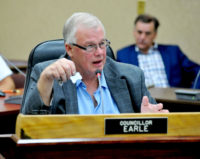Who to Contact?
Simply put, “who to contact”, really depends on the size of the municipality and at what stage of the procurement process you’re wanting to contact someone.
While procurement itself is governed by statutes, municipalities have the authority to put the processes and people in place to administer and manage the purchasing of goods and services on behalf of their taxpayers. Therefore, the responsibility for municipal procurement varies with each municipality.
All municipalities are required to have procurement policies and/or purchasing by-laws. Larger municipalities have more formal centralized procurement processes. This means their procurement by-law will be much more detailed and it will usually set out the roles of municipal staff in the procurement process. Larger municipalities usually will have a procurement department with a head of procurement – most likely a Chief Procurement Officer.
Other municipal staff (CAO, Finance, Legal, IT, etc.) and Councils all play roles in the process. Generally once Council has passed the budget approving the procuring of the goods or services for the year, it then becomes the responsibility of staff to administer the procurement process in accordance with the statues and their own purchasing by-law.
The purchasing of goods and ensuring adherence to the awarded contracts will be the responsibility of the purchasing department with oversight by the CAO, Finance, Legal and Department Heads. Generally, if you need to contact someone in a large municipality about procurement you would contact the Purchasing Department.
Smaller municipalities practice more of a de-centralized procurement model. This means there is generally no dedicated purchasing department and therefore no one person in the municipality who is responsible for administering the municipality’s procurement for all departments. Generally, the CAO will have oversight of all procurement but there are still many municipalities who have a Clerk, not a CAO so the Treasurer may take on the procurement role. In certain cases, Council itself may have a further role even after the budget has been approved.
In the de-centralized procurement model typically found in smaller municipalities, each department head develops their budget and once approved by Council, they are then each responsible for the procurement of the approved goods or services outlined in their budgets. While this works in theory the difficulty is that procurement is complex and individual department heads may not have thorough knowledge of the municipality’s procurement policies, so compliance with them may be jeopardized, which can place the municipality at risk of legal challenges from unsuccessful bidders.
Who to contact in a smaller municipality is sometimes more difficult to determine. If you want information on the municipality’s procurement process it may be best to acquire a copy of their purchasing by-law off their website which should identify who is responsible for procurement. Alternatively, you could contact the department head in charge of procuring the goods or service for their department, or the Treasurer.
With respect to “who to contact” about a particular bid opportunity, regardless of whether it’s a large or smaller municipality, there will be a designated person on the bid documents and you should always address questions to the individual named within the period of time specified.
Susan Shannon, Principal
muniSERV.ca




.jpg)
.png)



